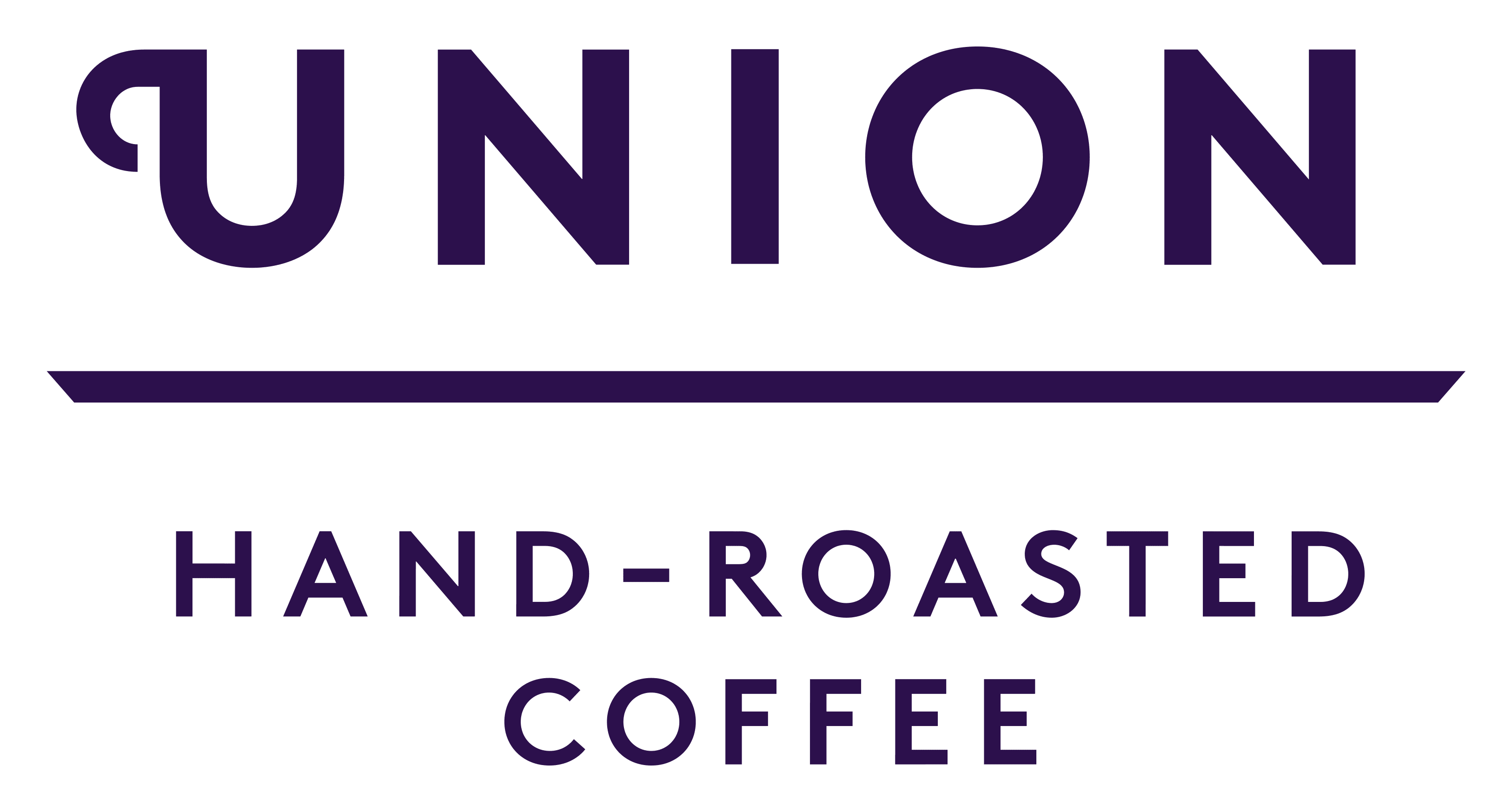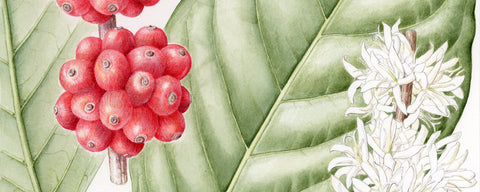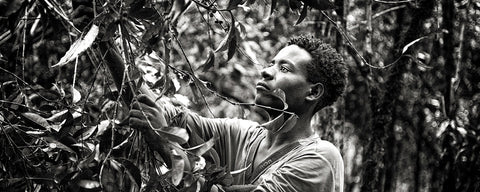What would Union be without women? It wouldn’t be! Every 8th March, we celebrate International Women’s Day – the global day focused on celebrating the achievements of women and raising awareness for continued gender parity.
While women play an essential role in coffee from farming to roasting and brewing, the coffee industry remains male-dominated and women continue to face biases and struggles every day.
Just one way we support women in our union is by purchasing and championing women-grown coffee. This year’s IWD theme is #BreakTheBias and we have a coffee and story which celebrates breaking boundaries and traditional paradigms. Introducing: Agasaro Women’s Lot from Coffee Cooperative of Gishoma (COCAGI) in Rwanda.

What is Agasaro, Women’s Lot?
Worn decoratively in women’s hair and in jewellery in Rwanda, “Agasaro” translates to “beads” from Kinyarwanda and is the name of the women-grown coffee at the Cocagi Co-operative.
Women, especially in remote areas at origin, face several challenges which prevent them from being financially independent and being given the recognition they deserve. Agasaro coffee is helping to #BreakTheBias and put women-grown coffee on the map while tackling common issues faced by women at origin. Read more about COCAGI and the role of the women’s group below!
Agasaro, Women's Lot boasts a fresh and citrussy profile with a tea-like mouthfeel and blood orange, lychee and hibiscus notes. It’s limited edition, so don’t miss out! Get yourself a bag here.
Who is COCAGI?
Our partners since 2006, COCAGI is a coffee growers' co-operative located in the Gishoma district of western Rwanda. They started out as an association of coffee producers in 2002 before registering as a co-operative in 2004. Since its inception, COCAGI has significantly increased its visibility through becoming Fairtrade certified as well as joining the Rwanda Small Holder Specialty Coffee Company (RWASHASCCO), a coffee marketing and exporting company providing key services to smallholder coffee co-operatives. Today, COCAGI purchases from over 1100 members.
The co-operative owns two coffees washing stations (CWS), Butambambo and Nyenji, bought in 2019. With two washing stations nearby, members can deliver cherries quicker and with a lot more ease. In 2016, a zoning policy was implemented that requires coffee farmers within geographic zones to sell to specific CWS and banning sales outside of the zones. Cocagi lost many members as a result and their production capacity declined. Purchasing the Nyenji CWS located in a different zone allowed them to recover 272 members.

Women in coffee
Women are a significant part of the agricultural workforce and are essential in coffee production. It’s estimated that between 20% and 30% of coffee farms are female-operated, and as much as 70% of the labour in coffee production is provided by women, depending on the region.
Despite these vital roles within the value chain, many women do not receive the recognition, rights or respect that they deserve. Women farmers in remote communities face challenges such as lack of opportunity for land ownership, access to finance, or the potential for leadership roles – this is particularly prevalent within the coffee industry. Improving gender equity in coffee communities has the potential to improve crop production, household welfare and community development.
According to the report Developing Ourselves: Examining Women Coffee Producer Empowerment and its Facilitation in Rwanda’ by Aleida Stone, published in 2018:
The rise of coffee washing stations has helped relieve women of the labour-intensive task of processing coffee cherries at home. The time-consuming nature of processing coffee cherries at home is now carried out by mechanical equipment, leaving a woman producer with both more time and opportunities to participate in other activities outside of her home."

Cocagi Femmes & “Agasaro” coffee
Cocagi began addressing gender equity as early as 2013 by setting up a group to which women in the Cocagi co-operative could be involved in. Named Cocagi Femmes (Cocagi Women translated from French), the objective of the group to promote women economically, increase their visibility and engage them in decision making.
They have a fund to provide credit facilities to diversify income – such as investing in growing and selling alternative agricultural products. Many of Cocagi’s members are single mothers and these income streams have increased these households’ resilience by broadening their revenue streams.
In 2017 Cocagi started separating women’s coffee. Coffee fruit delivered by women producers would be tagged, dated, and processed separately – this coffee is branded as “Agasaro”. The name is the Kinyarawanda word for “beads” which are worn decoratively in women’s hair and jewellery. This step in creating visibility and awareness for women farmers and their high-quality coffee has put Agasaro on the map meaning it can be enjoyed and appreciated around the world.

We asked Cocagi General Manager, Pastor Japhet, if we could interview Mukashema Jacquelina, a washing station manager at Butambambo. We sent some questions, which Pastor Japhet translated, and here she tells her story in her own words:
Can you tell me a little bit about yourself?
My name is Jacqueline, I’m 38 years old. I have one husband and three children, one girl and two boys. I live in Kamembe in the Western Province of Rwanda.
I started working at Cocagi in 2007 and became the Coffee Washing Station Manager at Butambambo CWS in 2021.
Why did you become a CWS manager?
I am a farmer and I am, of course, interested in coffee cultivation. I’m passionate about encouraging people, especially younger people, to explore agriculture and coffee. It can help transform their lives, alleviating them from poverty.
I also have good knowledge about what we do at Cocagi as I was already involved with daily activities such as coffee planting in the field and processing. All of these are reasons which motivated me to become a CWS manager.
Can you tell us about your job?
As well as running my own farm with 114 trees, my role as CWS manager involves increasing the quality and quantity of coffee through both cultivation and processing. While there are women farmers, there are very few women CWS managers.
Gender equality is one of the 17 Sustainable Development Goals (SDGs) agreed by the United Nations in 2015 as ways of building a better world by 2030.
From farmers to coffee lovers, our mission is to enrich life through our relentless focus on great quality, sustainable sourcing and sharing the culture of delicious coffee. Our Impact Strategy ensures we stay focused on this mission, with gender equity being a key part of our Quality of Life pillar. Check out what else we accomplished last year in our Impact Report 2021.

Cocagi's Social Impact
Gender equity isn’t the only social impact that Cocagi is targeting. They carry out a number of community development projects for their members and community:- Training on climate change and tree replanting programs to prevent soil erosion
- Education fund for farmers to use to pay children’s school fees and buy materials
- Planting eucalyptus trees, in line with their environmental and sustainability policy
- Contributing to the build of a 95 km electricity network to benefit several communities in the sector and set up a fund to support households in gaining an electricity supply
- Providing the Mutual Health Insurance Premium for 100 members of the community, who were mainly children
- Constructing community roads to provide access to essential services
- A social fund to cover and support community events such as sports and games, or in times of crisis, including covering funeral costs
With their members and their livelihoods at Cocgai’s core, celebrating International Women’s Day with Agasaro coffee is the perfect collaboration. Today and throughout the year, keep celebrating, recognising and supporting women in all walks of life and continue to #BreakTheBias. Challenge the norms, as Cocagi and Cocagi Femmes do!
Discover Agasaro for yourself. With a fresh, citrussy profile and blood orange, lychee and hibiscus notes – you don’t want to miss it! Shop Agasaro, Women’s Lot.


